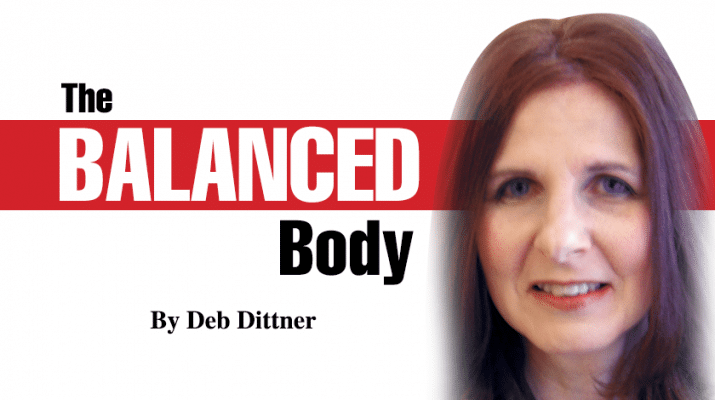Get pumped about protecting one of most vital organs in the body
By Deb Dittner
 Sadly, the leading cause of death for both men and women — approximately one in four — is heart disease.
Sadly, the leading cause of death for both men and women — approximately one in four — is heart disease.
Even with all of the information out there (including right here in your Mohawk Valley’s health care newspaper), you’ve been provided with ways to live a clean life, the dangers of sugar, red meat, too little sleep, and a shortage of exercise.
But still, many people continue to become victim to a medical structure and food practice that does not supply the appropriate tools necessary to regain health or prevent disease in the first place. Even medical research from one day to the next doesn’t necessarily agree with another. So who and what do you believe?
There has been great debate as to whether saturated fat has anything to do with cardiovascular disease. Saturated fat found in meat (fatty cuts of beef, pork, lamb, processed meats such as salami, and the skin on chicken), coconut oil, and dairy (butter, cream, regular fat milk, cheese) has been touted by the medical system as artery-clogging, leading you directly to heart disease, stroke, and diabetes in adults. But there is also research showing how these saturated fats are not linked to the above-mentioned conditions but can actually be beneficial, especially coconut oil.
The medical system also believes that cholesterol plays a large role in heart health. A preferable predictor is actually the ratio between high-density lipoproteins (HDL or good cholesterol) and triglycerides (trig or TB).
This ratio is also good in the determination for insulin resistance or metabolic syndrome. When lifestyle changes take place, these numbers tend to improve immensely.
So what actually causes heart disease?
Chronic inflammation will deposit cholesterol at the walls of the arteries leading to plaque formation and clogging. What causes this inflammation? Research is showing that a diet high in carbohydrates, increased stress, and little exercise is likely.
Plan a strategy
So what is the best way to tackle heart disease?
The Mediterranean diet (consisting of 41% fat) has been shown to decrease cardiovascular conditions. Research shows that the omega-3 fatty acids (found in fish and other seafood, nuts and seeds), polyphenols (found in berries, nuts, beans, non-berry fruit, dark chocolate, spices such as cloves, oregano, and celery seed), and alpha linoleic acids (found in flax seeds, pumpkin seeds, walnuts, and tofu) fight inflammation in the body.
More recent research is showing the Ketogenic diet (high fat such as avocado, avocado oil, olive oil, chia and flax seeds, nuts and nut butter, coconut oil, cheese, and low carbohydrates such as broccoli, bell peppers, asparagus, mushrooms, cauliflower, zucchini, avocado, and spinach) which has actually been around for about 100 years, reboots metabolism and is disease protective.
Of course, it’s important to note that no one diet alone is the answer for heart protection. Physical movement consisting of a minimum of 150 minutes per week of cardio activity (walking, running, cross-country skiing, cycling) and at least two days per week of muscle-strengthening activities (weight lifting, racquet sports, martial arts) is needed. It is also necessary to address chronic stress by incorporating a yoga practice, meditation, and breathing techniques.
Be sure not to smoke, as this will increase your risk for heart disease.
Proper sleep consisting of 7-8 hours nightly is another important factor to keep your heart healthy. Sleep reduces stress, causes you to stick to a healthy nutrition program and exercise program, thusly reducing your risk for heart problems.
It’s important to read, read and read some more when it comes to heart health and what you need to do to protect your heart and prevent symptoms on a daily basis. I empower you to take this challenge.
Before partaking in any specific nutritional program or exercise program, consult with your primary provider, especially when chronic disease is already present.

